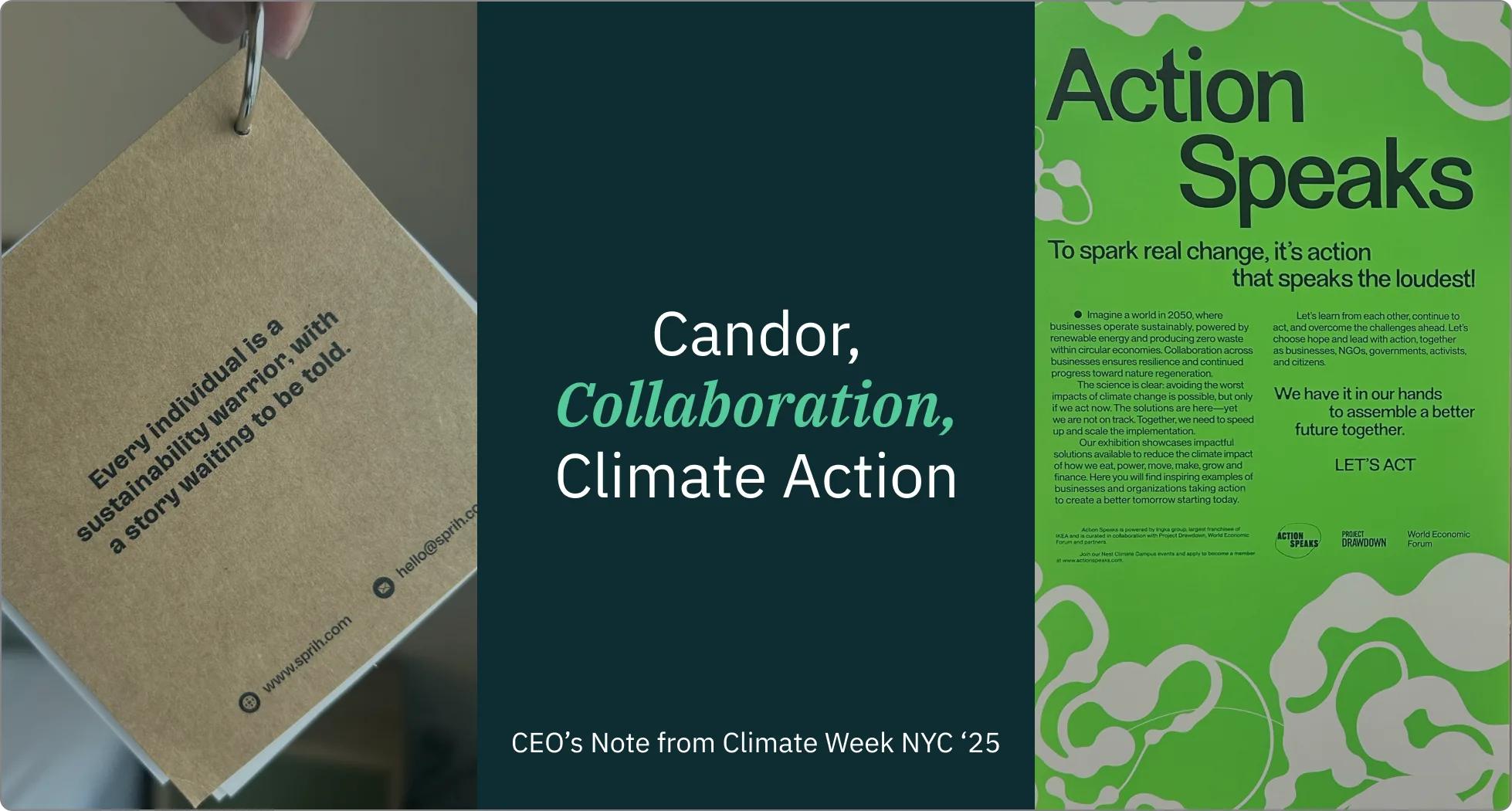Every September, New York City transforms into a stage where the future of our planet is debated, defined, and most importantly, acted upon. Two global gatherings converge at the same time: the United Nations General Assembly and Climate Week NYC. While heads of state gather at the UN to set agendas for nations, Climate Week has become the crucible where businesses, innovators, investors, and changemakers come together to confront the climate challenge head-on.
I remember when Climate Week first began: it was a call to awareness, a rallying cry to acknowledge the urgency of climate change. Over the years, it has grown into something much larger, a collective proving ground for solutions, commitments, and collaborations. The energy is unlike anything else. In one week, you find yourself surrounded by Fortune 100 CEOs, climate activists, scientists, policymakers, and entrepreneurs, all bound by the same realization: this is not someone else’s problem, it’s ours.
This year, the tone was unmistakably different. Gone were the debates about why we need to act. The conversation has moved past persuasion. The new reality is clear: if we are to protect humanity, we must act now. The dialogue focused on action, on transparency, on the how rather than lofty declarations. Leaders spoke not of distant goals but of near-term accountability. The realization that sustainability is no longer an optional responsibility but a core business imperative was everywhere.
In the middle of this momentum, we at Sprih had the privilege of adding our own chapter to Climate Week. At the Union League Club, we hosted an exclusive roundtable dinner with executives from some of the world’s most iconic companies—Target, Estée Lauder, PepsiCo, David Yurman, AlixPartners, Alnylam, Arconic and one of the world’s largest airlines, among others.
Our goal was not another formal panel. It was to create a space where candor could breathe. Together, with leaders across supply chains, climate finance, and corporate sustainability, we asked the hardest questions:
-
How do we decarbonize global value chains?
-
How do we balance financial risk with climate urgency?
-
Where are we overlooking resilience as an opportunity?
The power of the evening lay in its honesty. It wasn’t about polished talking points—it was about the lived realities of companies grappling with change. I am deeply grateful to our panelists—Ameet Konkar, Arun Skaria, David Eshmoili, Maithili Shenoy, Sudeep Suman, and our moderator Jay Koganti—for elevating the dialogue with their wisdom and candor.
As a token of appreciation for their time, insights and contribution towards sustainability, we planted a tree in the name of each attendee at 14Trees. You can actually see the living impact of that gesture on the
14Trees Dashboard — a reminder that every conversation can grow into something real.
We also chose this moment to launch something very close to our hearts: Sprih’s latest white paper. Built on over 200,000 reports from 80,000+ companies, it is one of the largest sustainability disclosure datasets ever assembled. It offers a rare global snapshot: where progress is being made, where gaps remain, and where possibilities for transformation lie. My hope is that it doesn’t just spark reflection, but drives bold action.
As I looked around the room that night, I realized: moments like these are where change begins. Not in isolation, not in boardrooms or conference halls alone, but in collective spaces where insight meets action, and action ripples outward.
Sprih's mission has always been to make sustainability data as decision-ready and powerful as financial data. Climate Week reinforced why that mission matters more than ever. The world doesn’t need more promises, it needs pathways, clarity, and the courage to act.
Here’s to building those pathways together.
Akash Keshav
CEO & Co-Founder
Sprih
